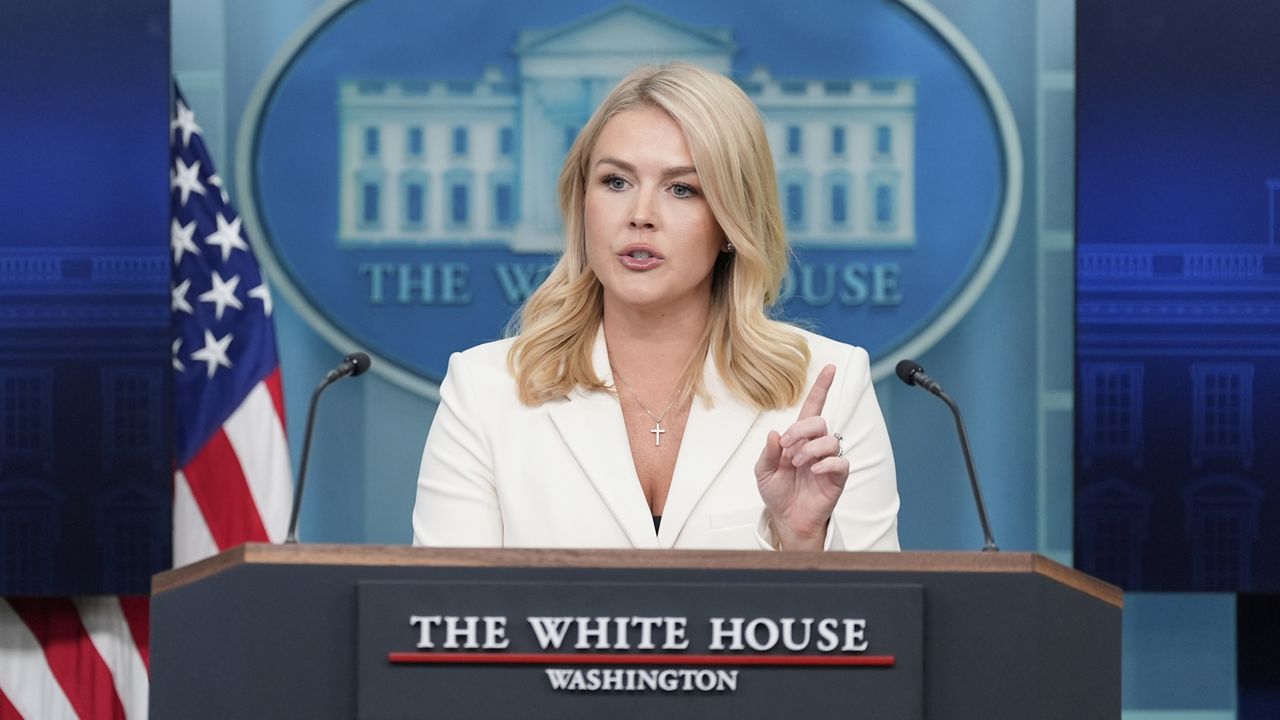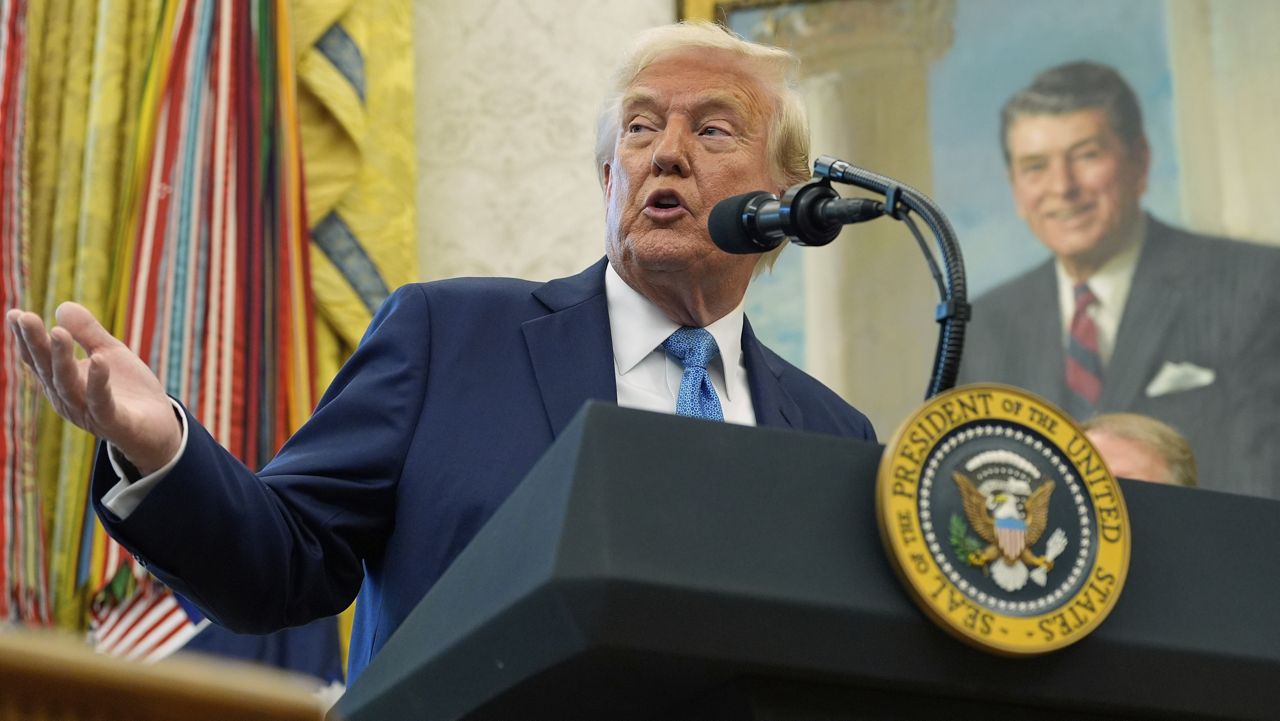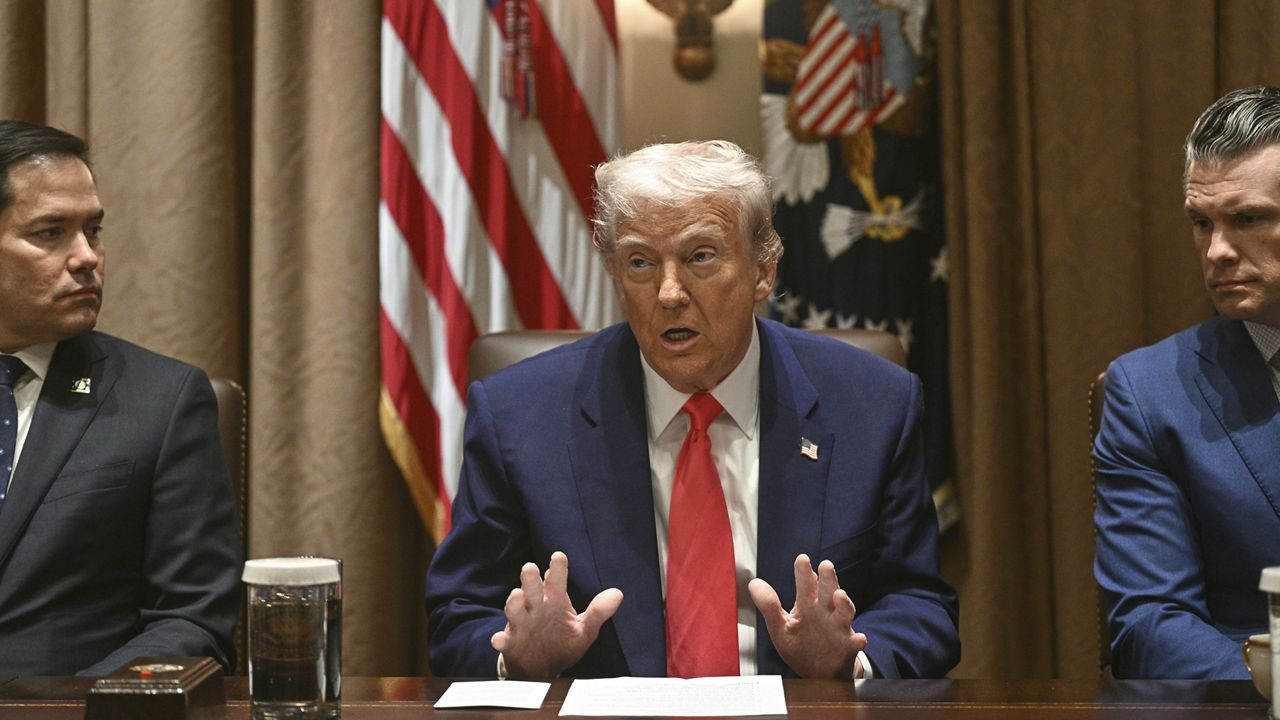WASHINGTON — President Donald Trump encouraged his trade team in a meeting on Tuesday to make individualized deals with countries that seek them in response to his closely-watched tariff announcement last week, White House Press Secretary Karoline Leavitt told reporters.
It comes hours before the new “reciprocal” rates Trump said he is imposing on dozens of countries as part of his broader tariff announcement last week is set to take effect on Wednesday.
“The president met with his trade team this morning and he directed them to have tailor-made trade deals with each and every country that calls up this administration to strike a deal,” Leavitt said. “And each and every one of these trade deals should be tailored and unique based on that country's market, based on that country's exports, the imports here in the United States of America – what makes the most sense for the American worker and for our industry.”
After confusion festered over the weekend around whether the tariffs were “permanent” or a negotiating tool, Leavitt touted the number of countries she said are reaching out to cut agreements and alter their trade practices in the wake of the president’s global trade shake-up.
“Countries are falling over themselves to reform their unfair trade practices in re-open their markets to our country,” she said, adding that nearly 70 countries had reached out to do so since the announcement.
Later at an unrelated event in the East Room, Trump echoed the sentiment, stressing that he was looking to make “highly-tailored deals” as opposed to what he called “off-the-rack” ones. He said the U.S. is already taking in $2 billion a day from his tariffs, although he did not provide any further details on the figure.
Leavitt, meanwhile, held up Israel has a “model for the rest of the world” in how to approach trade talks with the White House after the country’s prime minister, Benjamin Natanyahu, pledged to “eliminate” the trade deficit between the countries and consequently the tariffs “very quickly” at the end of an Oval Office meeting with Trump on Monday. Israel, which the U.S. had a $7.4 billion trade deficit with in 2024, according to the Office of the U.S. Trade Representative, was hit with a 17% tariff as part of Trump’s new plan, despite the country lifting all tariffs on U.S. goods imported into the country just before last week’s announcement.
Trump on Tuesday also touted potential deals with South Korea and Japan after speaking over the phone with the leaders of both countries.
In a post on Truth Social, the president said he spoke on Tuesday with the current leader of South Korea, announcing the “confines and probability of a great DEAL for both countries.”
He added that South Korea’s “top team” was on a plane to the U.S. for talks.
“We are likewise dealing with many other countries, all of whom want to make a deal with the United States,” the president added.
Leavitt told reporters that Trump has tasked his Treasury Secretary Scott Bessent and Trade Representative Jamieson Greer – who fielded questions from senators at a hearing on Tuesday – to lead talks on potential agreements.
Bessent on Tuesday said in an interview with CNBC that the willingness to negotiate was the result of “the massive inflow of inbound calls” from other countries, insisting it had “nothing to do with the market,” which has been rattled since Trump’s announcement.
Leavitt confirmed Trump is set to impose a tariff rate of 104% on all imports from China after it refused to back down from its own retaliatory tariff it placed on goods from the U.S. in response to Trump’s announcement last week.
“On the other hand, countries like China, who have chosen to retaliate and try to double down on their mistreatment of American workers, are making a mistake,” she said. “President Trump has a spine of steel and he will not break.”
The 10% baseline tariff Trump imposed on trading partners went into effect over the weekend. But the additional rates, individualized to countries he says the U.S. has the worst trade deficits with and based on what those nations charge the U.S., are set to go into effect just after midnight on Wednesday.







